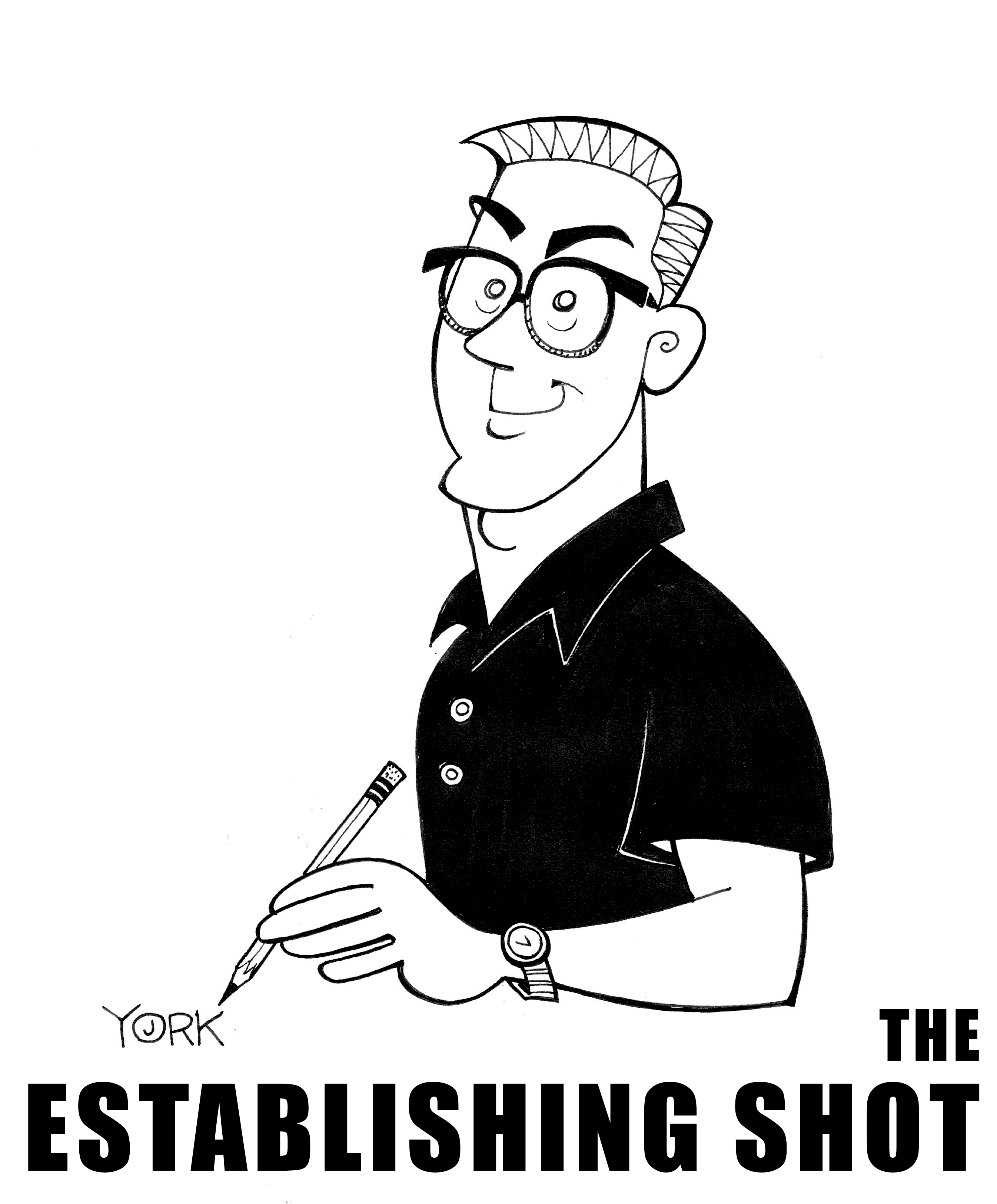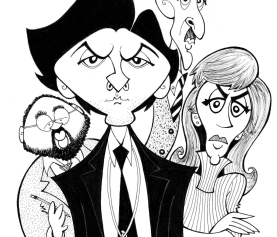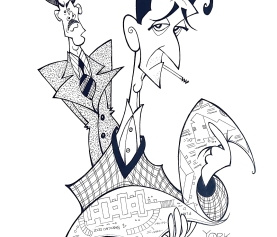
Original caricature by Jeff York of Colman Domingo and the SING SING ensemble (copyright 2024).
The 2024 movie season has now entered August and to my eyes, there are two genuine contenders for the Academy Award for Best Picture at this stage – DUNE: PART TWO, and now, SING SING. The latter is the most delicate of character studies: a true story concerning a batch of incarcerated men at Sing Sing in Ossington, NY who get in touch with their humanity via the theater program in their prison. It’s a profoundly moving film – smartly written, deftly directed, and superbly performed by an acting ensemble, mostly comprised of the actual individuals who took part in the program. Colman Domingo, one of the nation’s finest actors, leads the cast and he and everyone in it will astound you.
What’s even more amazing than all of the attributes in every second of the film is how many hoary prison cliches and tropes the film manages to avoid. Violence, rape, brawls – they’re not focused upon. Instead, the film tells its events with a clean, unfettered style letting the characters and all of the nuances of these men dominate the tale. Director Greg Kweder and his co-screenwriter Clint Bentley focus on the positive, chronicling a new production being done by the RTA (Rehabilitation Through the Arts) ensemble at Sing Sing. Their film showcases the auditions, the rehearsals, and how these tough men get in touch with the roles they’re playing, their fellow performers, and the range of their talent. It’s a thorough and compelling showcase of what goes into a show, rendered all the more enthralling because it’s happening in one of the least likely of settings.
Domingo plays John “Divine G” Whitfield, the ‘star’ of the RTA, whom we see as the film starts delivering the last lines of William Shakespeare’s “A Midsummer’s Night Dream” on stage. It’s the prison’s latest production coming to a close to enthusiastic applause from the troupe’s fellow inmates. Divine G doesn’t sound like an amateur, and indeed, he is a man in touch with words, expressing his feelings, and helping others realize their potential through theater as both teacher and colleague.
As his group starts a new project, under the tutelage of Sing Sing’s theater director Brent Buell (Paul Raci), the men are itching for something not quite as heavy as the Bard (Technically, ‘Dream’ is a comedy, but no matter, they want lighter fare.) New member Clarence “Divine Eye” Maclin, played by himself, suggests a comedy, and soon enough the other participants are brainstorming ideas about a potential time travel farce that would incorporate pirates, gladiators, Hamlet, and even Freddy Krueger. It’s a funny scene as these actors aren’t too shabby at improv either. With their inspiration, Brent sets off to write up such an unusual and original piece.
The crux of the film then lies within how these men rehearse and interact with each other, and through such experiences, their layered personalities – learning, screwing up, getting better – are revealed. Some of the guys struggle with emoting, others with understanding movement and blocking, and even G wrestles with his wounded ego when he loses the role of Hamlet to the better audition given by Divine Eye. Still, G and Divine Eye bond, even though the latter has a temper and often seems on the verge of exploding.
Domingo and Maclin do award-worthy work here, plumbing the depths of their exceedingly complex characters, as does Raci, but the true star of SING SING is the ensemble. It’s astonishing to realize that most of the cast are the formerly incarcerated men of Sing Sing, playing themselves more often than not. Not a move, line reading, or reaction feels anything less than 100% professional or truthful. At times, SING SING feels more like a documentary and that’s a high compliment to all involved. It feels utterly real and lived in.
The film showcases some of the grind and rituals of prison life and its toll on the men, but it doesn’t dwell on them. Nor does the film ever expound on what each man did to become incarcerated, instead showcasing them blossoming under the stage lights. The focus is on these men moving forward, not wallowing in their past sins. Again, the remarkable restraint that the filmmakers have chosen here to not go for any easy pathos or histrionics keeps this film continually buoyant and surprising. Even the score written by Bryce Dessner has more of a breezy jazz quality to it, hardly the stuff of most prison dramas.
Ultimately, it’s all about transcendence, both for the characters and the audience watching. SING SING is not only a film about the transformative nature of art but about how it affects us all, whether we are making it or experiencing it through the lens of an audience. SING SING shrewdly makes the case for rehabilitation as the goal of incarceration too. These men learn to see themselves not as monsters, maybe not even as men, but as artists. It’s a powerful lesson in one extraordinary film.







